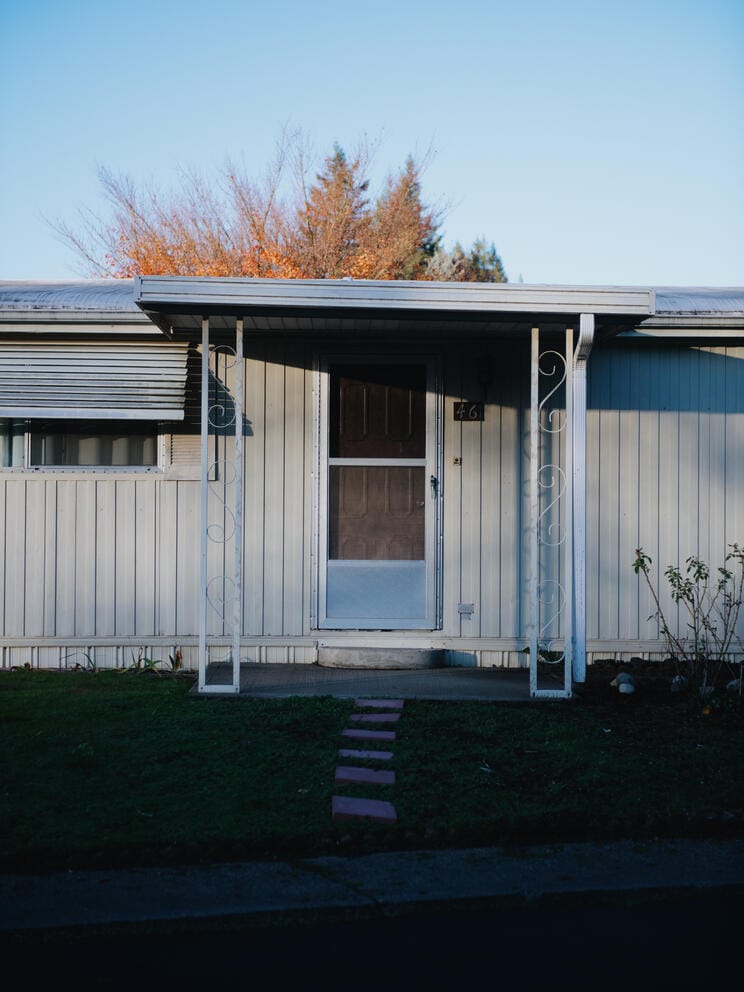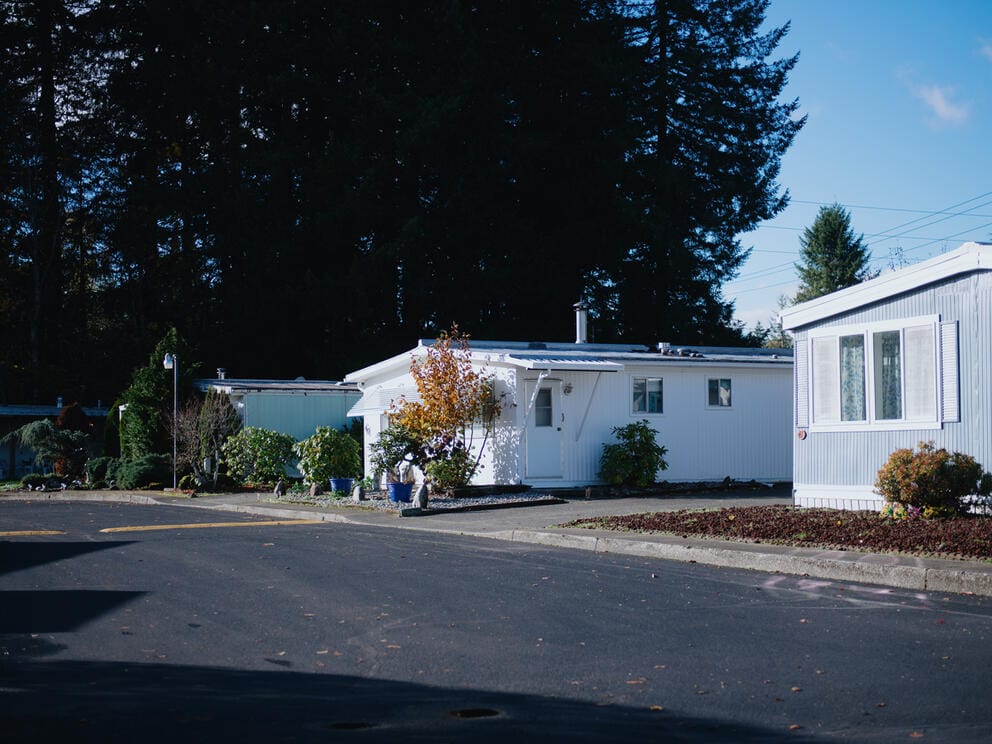Mobile home residents in Washington filed twice as many complaints to the state alleging unlawful rent increases, unfair policies or maintenance problems in 2023 compared to other recent years, according to the latest report from the Attorney General’s Office.
The state’s Manufactured Housing Dispute Resolution Program, overseen by the Attorney General’s Office since 2007, collects complaints and facilitates negotiations between mobile home tenants and their landlords. Program staff serve as a neutral party, but can investigate claims, mediate resolutions or file for court interventions in some cases.
The program’s 2023 report listed an unprecedented 731 complaints from tenants – up 28% from the previous year’s 572 and double the approximately 360 complaints filed in 2019-2021. Landlords also filed three complaints in 2023, down from 10-20 in other years.
The report lists seven employees with the program, but noted it had seen “many staffing changes in 2023 and experienced staffing shortages for extended periods of time throughout the year.”
“Current staffing is not sufficient to resolve and/or investigate the quantity of complaints seen this year ‘quickly and efficiently’ as directed in [state law],” the 2023 report stated.
This story is a part of Cascade PBS’s WA Recovery Watch, an investigative project tracking federal dollars in Washington state.
Brionna Aho, spokesperson for the Attorney General’s Office, attributed some of the increase in complaints to broader public awareness of the dispute program as well as the expiration of pandemic-era eviction protections.
“Rent increases are a common complaint topic, so it may be that park owners were complying with the moratorium on rent increases,” Aho wrote in an email. “[Though] rent increases are not themselves prohibited, so long as they are properly noticed and not retaliatory.”
Aho noted the program has also taken on enforcement of a recent state law change that requires notice of pending park sales. The 2023 report included a recommendation to increase penalties on violations of that law, as well as requests for additional clarity from lawmakers on enforcing failures to register mobile home parks and procedures for changing rent rates.
While the Attorney General’s Office has not finalized its upcoming requests to the Legislature, Aho wrote that officials may ask for additional support for the dispute resolution program.
“Our office is exploring options to expand the budget for the program,” she wrote.

Another unit at Tumwater’s Western Plaza Senior Mobile Home Park. (Grant Hindsley for Cascade PBS)
Advocates and tenants alike have told Cascade PBS that the program serves as one of the few avenues for legal recourse when landlords unexpectedly raise rents or impose new charges or policies. The surge in complaints comes as many family-owned mobile home communities have changed hands to consolidated corporate ownership.
Some tenants have also organized to document concerns in complaints more consistently as they push back on rent hikes that advocates described as “economic eviction.”
Approximately 200 people turned out to a recent public forum in Lynnwood to voice concerns about the declining affordability of mobile home communities and to hear about the dispute resolution program. Seann Colgan, with the Attorney General’s consumer complaint program, said the office works to ensure parties comply with the state’s Manufactured/Mobile Home Landlord-Tenant Act.
“We get our attorney involved and the attorney looks at the facts and makes a determination whether or not there was a violation of the law or not, and issues a notice of violation,” he said.
After tenants in Grays Harbor County organized to challenge recent rent increases and maintenance policy changes, the program negotiated an agreement with the owners, Port Orchard-based Hurst & Son LLC, to roll back rent increases and update policies. According to Aho, 151 complaints filed to the program last year involved Hurst & Son parks.
In some cases, the Attorney General’s Office can move on to enforcement if both parties cannot reach an agreement through the program’s mediation process.
The most significant enforcement action in the report involved nearly $1 million in civil penalties against the owners of Beacon Charters RV Park in Pacific County for unlawfully attempting to evict all of their tenants. The Attorney General’s Office has pursued multiple civil interventions in that case in Pacific County Superior Court.
Other enforcement actions included cease and desist orders against Lakewood’s Windsor Court Mobile Home Park and Lawson-Campbell Mobile Home Park in Airway Heights for failure to cooperate with the program and park upkeep.

Subjects of complaints at parks like Western Plaza include rent increases, maintenance, safety and sanitation concerns, eviction proceedings, park rules enforcement and fees.
The 2023 report indicated that about a quarter of the complaints referenced utility issues, 121 involved rent increases and 112 included maintenance disputes. Some complaints also include safety and sanitation concerns, eviction proceedings, park rules enforcement or fees.
The program listed 514 complaints as closed, with 168 of those attributed to voluntary compliance with dispute resolution mediation. Program staff found no landlord/tenant law violations in 68 cases and that the “complainant stopped participating in dispute resolution process” on 40 complaints. Another 40 complaints were referred for enforcement.
Ishbel Dickens, a mobile housing tenant rights advocate and retired attorney, argued the dispute resolution program is not operating to its highest potential “because there’s not a lot of money that’s coming into the program.”
Dickens, who was consulted throughout the program’s creation, said she would like to see the Attorney General’s Office submit a budget request in the upcoming 2025 session to fully fund the program.
She said she also hoped the AGO would take action on the recommendations outlined in the latest report, including the call to increase fines on park sales without proper notice. She said a portion of those fines could go toward funding the dispute resolution program.
“I think we have to highlight the good that they do, and that without them – 700 people would have nowhere to go, and these people that got reimbursed wouldn’t have gotten anything. So I would say it’s working, but it could work better with [more] resources and a broader jurisdiction,” Dickens said. “The recommendations are valid. Let’s figure out a way to get them addressed as quickly as possible so that they’re not an issue going forward.”



